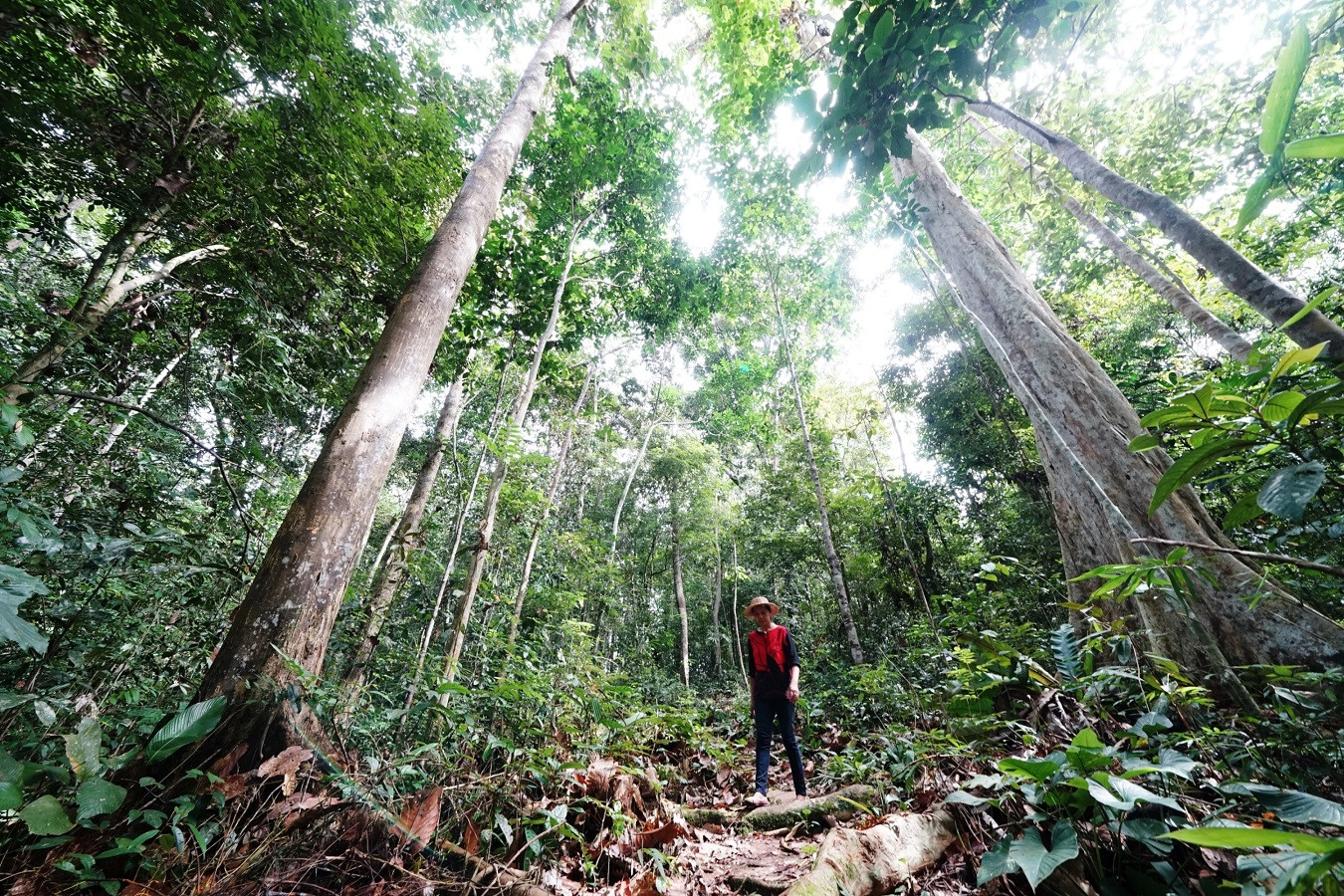Popular Reads
Top Results
Can't find what you're looking for?
View all search resultsPopular Reads
Top Results
Can't find what you're looking for?
View all search resultsJob Creation Law may have devastating impact on forests
The jobs law removes the minimum relative forest cover to be preserved by the government.
Change text size
Gift Premium Articles
to Anyone
A
provision in the controversial Job Creation Law raises the risk of further forest devastation as it relaxes rules on environmental protection, a local think tank says.
The recently passed legislation removes the minimum relative forest cover to be preserved by the government. Previously, Article 18 Paragraph 2 of Law No. 41/1999 on Forestry stipulated that the government should maintain a forest area equivalent to 30 percent of watershed or an island area for the environmental, social and economic interest of the locals.
“The removal of this provision [creates a chance] for environmental damage that is worse than what we see today,” Mirah Midadan, a researcher at the Institute for Development of Economics and Finance (Indef), said in a virtual discussion on Monday.
“Without the provision on that percentage, the government must prepare a mitigation against the reduction in forest area, because it may lead to various kinds of natural disasters."
Labor unions and environmental organizations have voiced opposition against the jobs law as they fear it will boost investment as intended but at the expense of labor rights and the environment.
Indonesia recorded a 5.2 percent rise in net deforestation to around 462,400 hectares between 2018 and 2019, according to data from the Environment and Forestry Ministry.
Read also: Environmental concerns, protests may discourage foreign investment: Moody’s
The government also replaced the previous business license regime with a so-called risk-based approach under the new jobs law.
With that approach, businesses deemed to pose a low risk to the environment, safety, health and natural resources, such as small businesses, can simply register themselves via the online single submission (OSS) system to get a Business Registration Number. Otherwise businesses will need a permit.
Berly Martawardaya, the executive director of Indef, said the risk-based approach was still incomplete, as it did not take into account the uncertainty factor in business risks.
He said the authority to determine the risks should be independent and consist of scientists, local public figures, regional administrations, the government and businesses.
Indonesia also lacks data on mountain ranges, forests and seas located far from the cities, said Berly. Thus, the country may need at least a year to collect the necessary data to determine the risk levels.
“We still do not know a lot of things regarding risks and dangers,” Berly said. “We need to protect something that we still do not know for the time being. It is better to protect it first than losing something that may turn out to be big.










